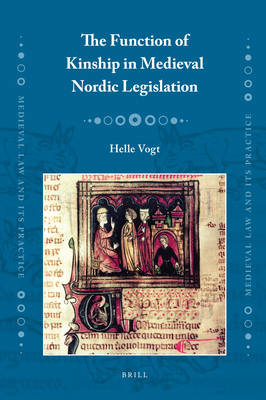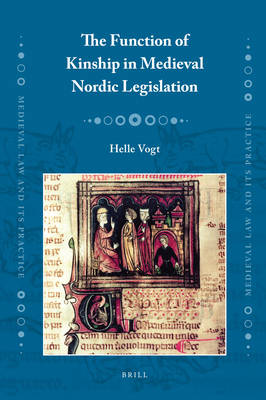
- Afhalen na 1 uur in een winkel met voorraad
- Gratis thuislevering in België vanaf € 30
- Ruim aanbod met 7 miljoen producten
- Afhalen na 1 uur in een winkel met voorraad
- Gratis thuislevering in België vanaf € 30
- Ruim aanbod met 7 miljoen producten
Zoeken
Omschrijving
A strict definition of kinship - a canonical one - was in introduced in to the Nordic medieval legislation. This replaced a looser definition. According to a canonical definition of kinship - constructed after the Church's incest prohibitions, you were obligated towards all your blood-relatives. This doctrine applies where: 1) The kin group acted as a legal person towards a third party in cases about paying of wergeld, and where the kinsmen collectively took an oath. 2) Rights and obligations between the kindred regulated land transactions either by inheritance, donations or sale. Here the obligations were at their widest. The moral requirement for love and cohesiveness was strengthened by more substantial rules to ensure, that land was not transferred at the expense of kinsmen.
Specificaties
Betrokkenen
- Auteur(s):
- Uitgeverij:
Inhoud
- Aantal bladzijden:
- 304
- Taal:
- Engels
- Reeks:
- Reeksnummer:
- nr. 9
Eigenschappen
- Productcode (EAN):
- 9789004189225
- Verschijningsdatum:
- 24/09/2010
- Uitvoering:
- Hardcover
- Formaat:
- Genaaid
- Afmetingen:
- 155 mm x 235 mm
- Gewicht:
- 591 g

Alleen bij Standaard Boekhandel
+ 561 punten op je klantenkaart van Standaard Boekhandel
Beoordelingen
We publiceren alleen reviews die voldoen aan de voorwaarden voor reviews. Bekijk onze voorwaarden voor reviews.








